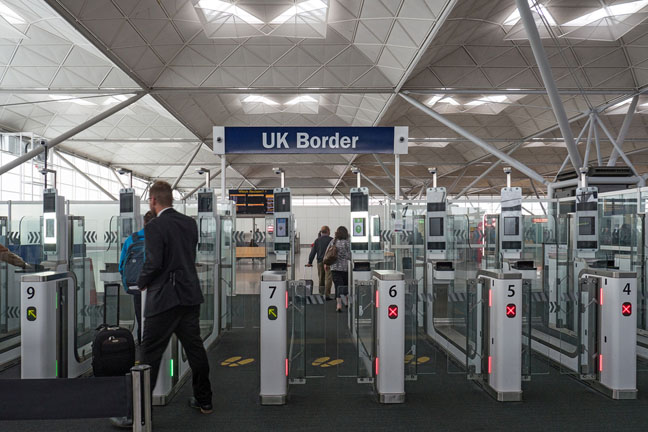Deloitte Wins Deal Worth Up To £100M For UK Border Platform

The UK's tax collector has awarded Deloitte a deal worth up to £100 million ($127 million) to provide a digital gateway for businesses getting goods across UK borders as part of its strategy for post-Brexit trade.
The global consultancy bagged the three-year contract to help design, build, operate and maintain "a market-leading digital platform," the so-called "Single Trade Window" (STW), which the government hopes will create a single gateway for all data from traders.
According to a tender notice, Deloitte will "need to work flexibly with the STW Programme and its delivery partners across [government] departments to ensure the service design and delivery of the STW is fit for now and for the future, to enable the range of ambitious border transformations that Government is undertaking."
Instead of going to open competition, the deal was awarded as a call-off from a pre-existing framework agreement, Technology Services 3.
The STW is described in the 2025 UK Border Strategy [PDF], launched in December 2020, following the 2019 election of Boris Johnson as prime minister, who promised to "get Brexit done."
- Brexit Britain looks to French company to save crumbling borders and immigration tech
- BAE Systems handed £38m Border Force intelligence contract
- IBM doesn't think Brexit is such a bad thing these days
- UK signs deal to share police biometric database with US border guards
Following the UK's practical departure from the EU at the end of the 2021 transition period, open border arrangements with the EU, by far the nation's largest trading partner, came to an end and border checkers came into place.
The UK had relied on a patchwork of systems to check goods at the border and record information required by customs and traders. Among them was Chief, a system introduced in 1994 and set to be decommissioned by June 2023, owing to the delayed 10-year project to replace it with IBM's Customs Declaration Service.
"The STW is a fundamental enabler for future change at the border," the tender document says. "It will deliver a set of technology capabilities that make a range of border policy changes possible that were historically not feasible due to the disparate sources of border data across government."
Systems currently used to record data about goods at the border – which include those from the Maritime and Coastguard Agency and the Department for Environment Food and Rural Affairs – is "not optimised to share useful data between departments," according to the government strategy. The STW is modeled on systems employed by other governments around the world, including New Zealand. ®
From Chip War To Cloud War: The Next Frontier In Global Tech Competition
The global chip war, characterized by intense competition among nations and corporations for supremacy in semiconductor ... Read more
The High Stakes Of Tech Regulation: Security Risks And Market Dynamics
The influence of tech giants in the global economy continues to grow, raising crucial questions about how to balance sec... Read more
The Tyranny Of Instagram Interiors: Why It's Time To Break Free From Algorithm-Driven Aesthetics
Instagram has become a dominant force in shaping interior design trends, offering a seemingly endless stream of inspirat... Read more
The Data Crunch In AI: Strategies For Sustainability
Exploring solutions to the imminent exhaustion of internet data for AI training.As the artificial intelligence (AI) indu... Read more
Google Abandons Four-Year Effort To Remove Cookies From Chrome Browser
After four years of dedicated effort, Google has decided to abandon its plan to remove third-party cookies from its Chro... Read more
LinkedIn Embraces AI And Gamification To Drive User Engagement And Revenue
In an effort to tackle slowing revenue growth and enhance user engagement, LinkedIn is turning to artificial intelligenc... Read more

